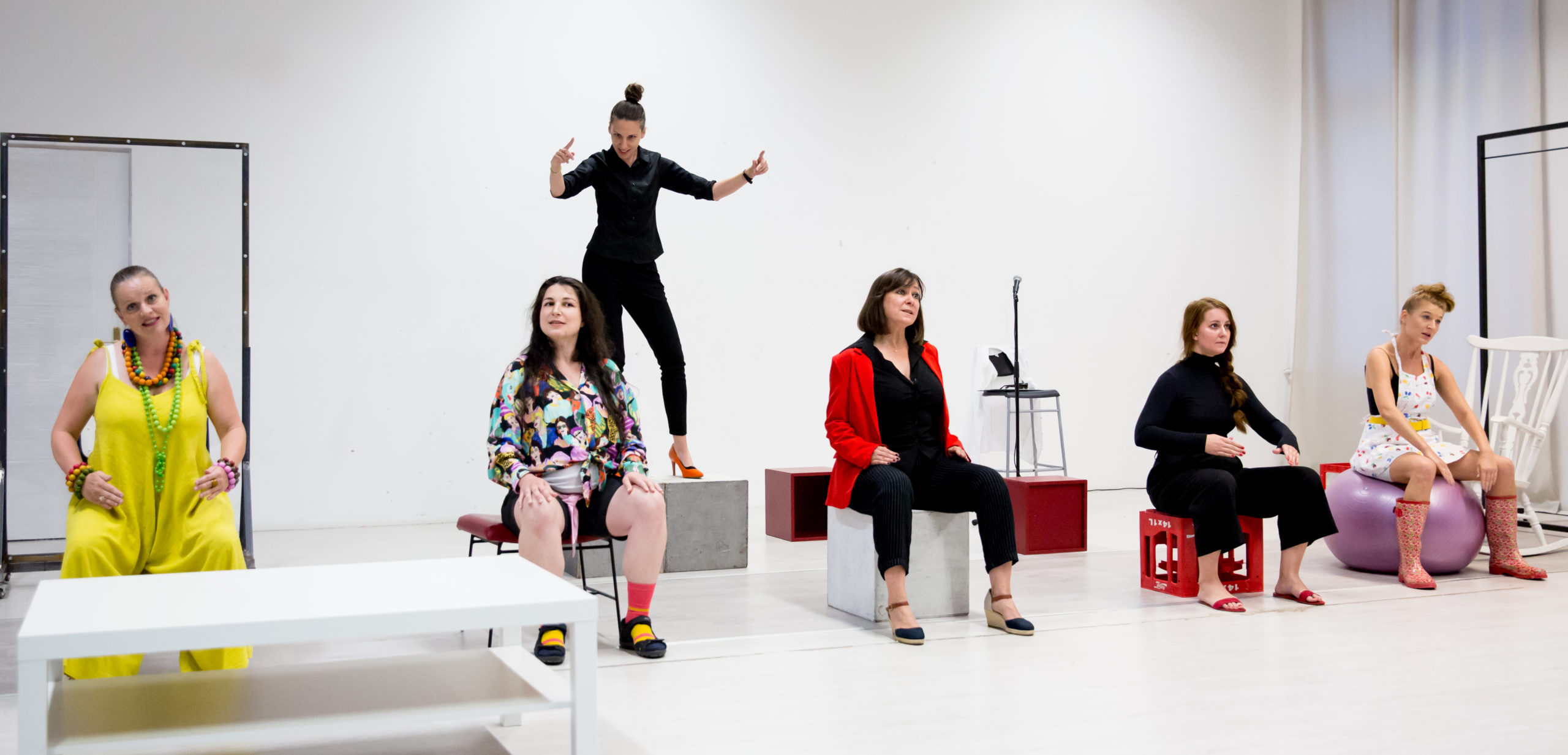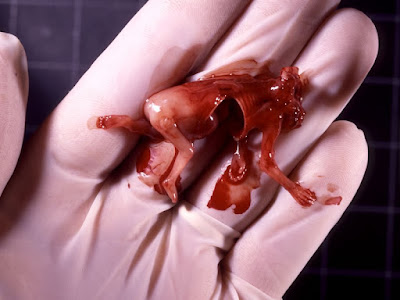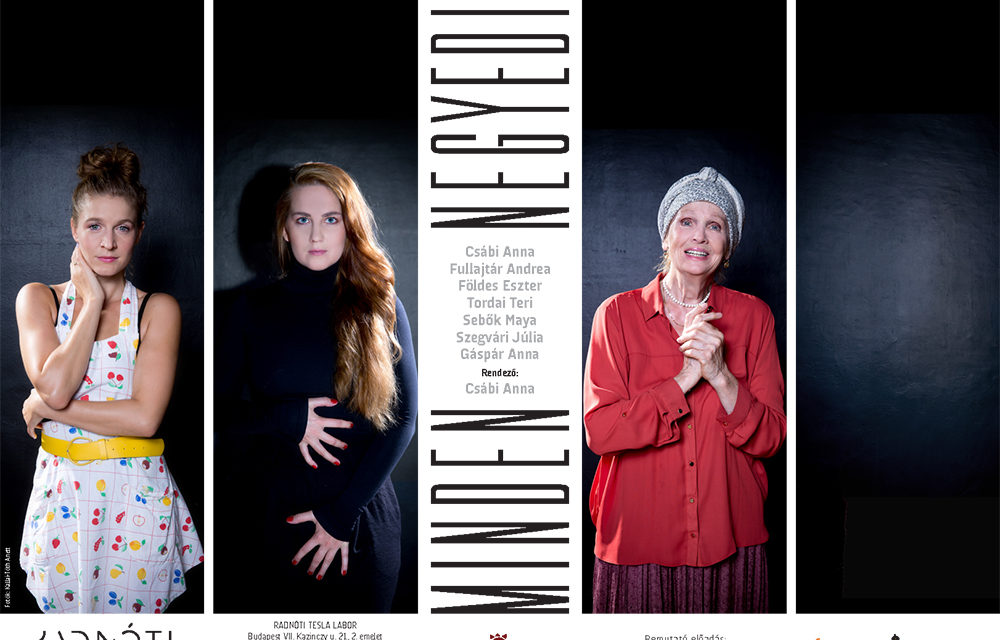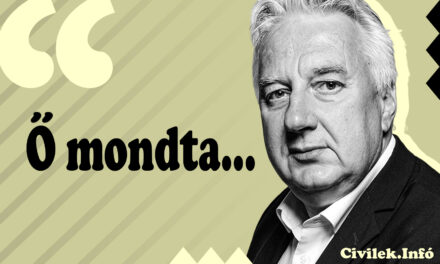Every fourth. This is the title of the performance of Manna Produkció, which was presented by Tesla Labor in cooperation with the Radnót Theater on November 8. In the play, seven women of different ages and life situations tell their own stories about how they lost or miscarried their fetuses... and let's stop there! Let's stop because we already feel that something is very wrong.
First of all, however, it is worth clarifying when a person is a person, if only because the first sentence of the introduction to the presentation asks the following question:
"How could he who was not born die?"
Now, while the process of birth and conception used to be shrouded in mystical gloom, and with the exception of Eastern civilizations, they could not determine the time of conception for thousands of years, according to modern analyzes and tests, the fetus is identical to the whole person from the moment of conception. According to Dr. Miklós Vass, chief physician
"from the first moment, the fetus has the characteristics of a human being. The development of the organs starts early, and the 11-12. it will be finished in a week. By the 12th week, all organs of the embryo have developed. His body is also developed, he has an independent vascular system, and his skin sensation can be detected. It has defensive reactions, swallowing and breathing movements, opens its mouth, is 8 cm long. From then on, there is only organ growth."
This fact is also confirmed by psychology. The newborn does not start with a clean slate, i.e. he gains a lot of experience and learns even in life inside the womb. They observed that if the mother is excited, the fetus moves more actively in the womb, and the fetus's heart rate increases when the mother goes up the stairs. The fetus reacts to noises and music in the womb, starts moving faster, gets scared by sudden noises. The womb is not a quiet world. Scientists now have no doubt that the fetus listens to what we say, that is, it is not an unconscious, vegetative being, as some imagine. He therefore proved that the fetus is already an individual, and it is possible to establish a relationship with it even before its birth. Birth is therefore nothing more than an event in life; and life begins inside the womb and then continues in another location, outside the womb.
And then let's get back to the play, the description of which continues as follows:
"Artificial abortion, spontaneous abortion, emergency caesarean section, mid-term termination on the grounds of developmental disorder. Although perinatal loss is common, we are unable to deal with it on a social level. It is appropriate for women who have experienced such trauma to keep their problems quiet, their grief is incomprehensible, illegitimate and taboo. Every fourth pregnancy ends prematurely. How can we mourn someone whose development we deliberately interrupted?”
And all this is stealthy meanness. It is vile because it confuses abortion with spontaneous abortion, even though there is something we call a decision as a sharp dividing line between the two. Independent decision, in other words: free will. Because a person who has undergone a spontaneous abortion (or other life-threatening termination of pregnancy necessary for health reasons) did not have the opportunity to make a decision, in contrast to a woman who voluntarily chooses to abort a healthy fetus. And this is certainly true even if a woman who decides to abort a healthy fetus later regrets her action and suffers for the rest of her life from the trauma caused by her own choice. Many people walk this way, no doubt, but that does not give anyone the right to spread stolen tears.

Photo: Anett Kállai-Tóth
The play's conclusion makes the intention of relativization clear, the old lady played by Teri Tordai tells her granddaughter that there were abortions in her time as well, because no one talked about how to protect themselves. Doctors at the time blamed boys for unwanted pregnancies, but she asks who is to blame, is anyone to blame at all?
Er, yes. Wrong. Given is a woman, a man, a doctor, and a society that legitimizes murder. That's how many characters came to mind. And all of them, in one way or another, have something to do with taking a life. I would like to note that moving towards the West, these highly sensitized societies are increasingly expanding the limits of the possibility of killing their fetuses, even though today there is a wide range of contraceptive options available for responsible family planning.
At the end of the play, after the women have therapeutically discussed their grief, they say goodbye to their unborn fetuses and gain redemption. In this way, a woman who decides on an artificial abortion becomes the same victim as a woman who has undergone a spontaneous abortion. Or like a fetus deprived of its life. The desired sensitivity has been achieved, there is nothing to see here, let's move on.

11-week fetus
Or maybe not. Because there is indeed a difference, even if the camp of those who decide in favor of abortion forms a broad spectrum and cannot be lumped into a single labeled box. There is a difference between abortion and spontaneous abortion, just as criminal law distinguishes premeditated intent . Not all the same. It doesn't matter if the passenger in my car loses his life because we crashed into a tree as a result of a flat tire, or because I drove into the tree on purpose while I was insured.
Today, induced abortion is the most common cause of death in the world, the WHO estimates the number of abortions to be at least 40-50 million per year, which means 125,000 induced abortions per day. Six million abortions have been performed in Hungary alone since 1956. This is the Hungarian Holocaust, as Géza Bányay puts it in his study of the same title . And it would be great if we ended once and for all the hypocritical sensitization to institutionalized genocide that spreads the tears of others.












